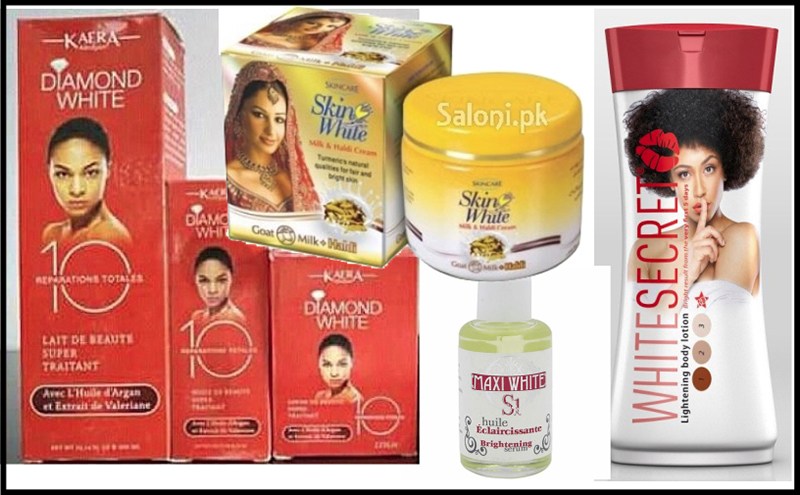
A recent crackdown by the Rwandan government on the sale of skin lightening creams has highlighted the intense desire of nonwhites to look like whites—and the fact that more than half of the world’s nonwhite females use such lotions, even if many claim to be “proud to be black.”
The Rwandan government crackdown—as revealed in recent media reports—has seen officials deployed across that country to enforce a total ban on skin lightening and bleaching products.
Rwandan President Paul Kagame sparked discussions on the need to ban the sale of skin “whiteners” on social media in November last year, when, in response to a post from a woman calling for the government to crack down on skin bleaching, Kagame said on Twitter that bleaching creams are unhealthy, and he called on the country’s ministry of health and police to rein “this in very quickly.”
Government officials and police are now patrolling markets in the capital, Kigali, and in provinces across the central African nation, seizing skin-lightening and bleaching products from vendors, media reports said.
Rwandan police said they seized more than 5,000 banned bleaching products, including lotions, oils, soaps and sprays, from beauty shops across the country last month, according to local media, New Times.
Commissioner of Police John Bosco Kabera told the New Times that that the “illegal products were seized from beauty shops in Kigali, and Eastern, Northern and Western provinces where the operations have been conducted so far.”
Among the products taken off shelves included products named “Maxi-White,” “Skin White,” “Fair Light,” “Secret White,” and “Diamond White.”
Ghana implemented a ban on skin lightening creams in 2017, following Ivory Coast’s ban in 2015.
Despite such moves, the global market for skin-lighteners is projected to reach $31.2 billion by 2024, up from $17.9 billion in 2017, especially in Asia, the Middle East and Africa, according to a report by the market research group Global Industry Analysts.

A World Health Organization information piece on skin lightening creams reveals that mercury is a common ingredient in skin lightening soaps and creams which “are commonly used in certain African and Asian nations.
“They are also used among dark-skinned populations in Europe and North America.”
The preparation works through the Mercury salts inhibiting the formation of melanin, resulting in a lighter skin tone.
The WHO claimed that on average, over 50 percent of females in Africa “are reported to use skin lightening products on a regular basis,” and that “nearly 40% of women surveyed in China (Province of Taiwan and Hong Kong Special Administrative Region), Malaysia, the Philippines and the Republic of Korea reported using skin lighteners.”
In India, the WHO report added, “61% of the dermatological market consists of skin lightening products.”
It is clear therefore, that a large number—likely the majority—of nonwhite females around the globe are prepared to seriously damage their health in an attempt to look as white as possible.
This, like the obsession with hair straighteners, provides a psychological insight into the question of race and how nonwhites actually perceive white people—no matter what they might say in public or how “Wakanda” they claim to be.
It also makes a mockery of the “cultural appropriation” nonsense sprouted by so many nonwhites, particularly when it is understood that almost everything nonwhites have was invented by white people in the first place.
RELATED ARTICLES
- Man Caught on Camera Punching Random Women in Barcelona Metro Station
- French Man Pretended to be Alien Prophet to Sleep with THOUSANDS of Women in the 90s
- Spike Protein Makes Women 'Infertile', Scientists Warn
- Chinese caught INTENTIONALLY spreading Coronavirus in USA
- More than 70% of Coronavirus Deaths in Italy are Men, Scientists Baffled











